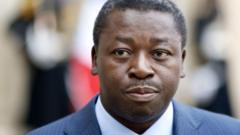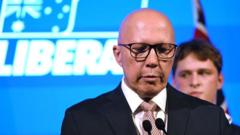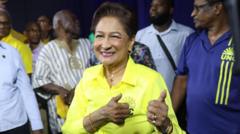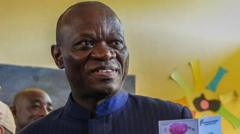Amidst constitutional amendments ending presidential elections in favor of a parliamentary system, Togo's leader Faure Gnassingbé has assumed a role with no term limits, prompting opposition fears of lifelong governance.
Togo's New Political Shift: Gnassingbé’s Life-Long Rule Apparent

Togo's New Political Shift: Gnassingbé’s Life-Long Rule Apparent
Faure Gnassingbé's new title as "President of the Council of Ministers" raises concerns over his potential indefinite rule amidst constitutional reforms.
The Togolese political landscape has recently undergone significant transformation, as President Faure Gnassingbé has been inaugurated as the "President of the Council of Ministers." This newly established position, which sits at the apex of the executive branch, does not impose any term limits on Gnassingbé, further consolidating his authority.
Critics argue that this move is part of a larger trend to enable Gnassingbé to maintain his grip on power indefinitely. The constitutional reform that facilitated this shift has effectively abolished presidential elections and replaced the existing presidential system with a parliamentary structure.
Gnassingbé has been at the helm since 2005, succeeding his father, Gnassingbé Eyadéma, who dominated Togo's politics for 38 years. The consolidation of power has drawn severe condemnation from opposition factions, who characterize the changes as an "institutional coup d'état." Despite initial backlash leading to a pause in some reform initiatives, the government has resumed implementing this new structure.
The upcoming municipal elections scheduled for July will be the first conducted under the new constitutional framework. Analysts observe that while Gnassingbé's official title may now lack the prominence of "President," his central leadership role as council president has actually strengthened his influence over governmental affairs. Supporting this assertion, Gnassingbé's party, the Union for the Republic, secured a remarkable victory in the previous parliamentary elections, capturing 108 out of 113 seats in the National Assembly.
As these political changes unfold in Togo, the international community is closely watching the implications for governance and civil liberties.



















